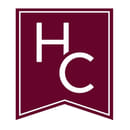If you haven’t heard yet, the guidelines for content filtered by YouTube’s “Restricted Mode” were changed about a week ago, and it’s a big deal.
“Restricted Mode” on YouTube is a setting that was created in 2010 that filters out sexual, mature, vulgar, and inapropriate content on YouTube such as nudity, swearing, and adult themes. It restricts what you can search for and what you can see and watch on YouTube when this mode is on. The mode is only used by 1.5 percent of the user base, but it still caused a lot of issues. The main issue lies in the fact that the changes to “Restricted Mode” filtered out any hint of LGBTQ+ content, creators, videos, music, and overall themes, as well as other content and creators that should not be censored.
The first and most obvious issue is that YouTube censored out an entire community of sexualities, which is wrong. Nobody should be able to restrict and censor creators and videos due to race, gender, religion, or sexuality. The LGBTQ+ community was being censored, and that their videos were being restricted for no reason other than the fact that they are LGBTQ+. Many of the videos that were restricted from the change were not vulgar or sexual, did not include nudity or swear words, and had no material that would be deemed inappropriate for viewers under 18. This change also affected non-LGBTQ+ creators, but largely impacted the LGBTQ+ online community. Although the feature can be turned off, it still brought up other issues for the YouTube user base and the LGBTQ+ community. Many users may not feel safe accessing LGBTQ+ material, or other restricted content, in certain contexts, or they may not be able to in certain spaces. The new changes limit the access members of the LGBTQ+ community have to the content and community.
The changes immediately brought on backlash towards the platform, and many influential creators spoke out about their content and the content of the LGBTQ+ community being censored. Tyler Oakley, Gigi Gorgeous, Jenna Marbles, and many other creators took to Twitter and YouTube to voice their outrage towards the new restrictions. YouTube has since released statements that they are trying to fix the problem and apologizes for the confusion, but the content has yet to be fully and successfully unrestricted. Many LGBTQ+ creators and videos, and other creators and content that were unjustly censored, are still restricted.
Below, I’ve included a podcast by the Jenna Julien Podcast that speaks out on the issue and the implications it brought. Ladies, let us know what you think about all of this.

